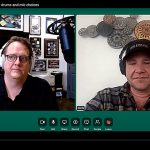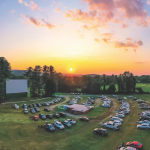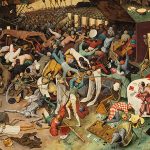Live music, the putative savior of the music industry, took a hit in 2010, and that has serious implications for live sound systems providers and operators. According to Pollstar's end-of-year report, concert touring revenues declined steeply last year: ticket sales for the 50 biggest grossing tours globally fell 12 percent, to $2.93 billion, from $3.34 billion in 2009. In the U.S., the world's single biggest music market, the drop-off was even larger, with concerts here reporting a 15 percent decline to $1.69 billion. And those same top 50 acts played 8 percent fewer shows in 2010, says Pollstar.
This was ultimately inevitable in an environment in which music – recorded or otherwise – has been devalued and commoditized. To some extent, the uniqueness of each concert – the potential for the unexpected, like, say Clapton jumping on stage for an impromptu jam – has been diminished over time as both acts and promoters strive for perfection; i.e., predictability. Once the fan believes that the live experience will be as foreseeable as the CD or as the DVD of a previous tour, the incentive to pay to see the artist live diminishes.
This hasn't been helped by rising ticket prices, which increased worldwide 3.9 percent to $76.69, up from $73.83 in 2009, Pollstar's research says. The fact that ticket prices in North America actually fell last year – the average price declined $1.55, or two percent – doesn't indicate any kind of sensibility returning to pricing so much as it does reflect Live Nation Entertainment's widespread last-minute discounting. According to the Wall Street Journal, concert promoters here slashed ticket prices for some underperforming shows, including tours by the Jonas Brothers, Rihanna, Santana with Steve Winwood, Creed, Maroon 5 and The American Idols Live tour, to $20 or even $10 a ticket. In fact, that kind of discount desperation, coming on the heels of a decade's worth of relentless ticket price increases that shot a night at the arena in some cases into four digits for the best seats, only contributes to the perception that music is worth less.
Complicating the picture is the fact that the artists showing the best economic numbers last year also had the highest chronological ones, too. Of the top 10 tours of last year, only Lady Gaga, Michel Bublé and Jon Bon Jovi are under 50 years old. The concert promotion industry's continued reliance on vintage acts like AC/DC, U2, Metallica, Paul McCartney, Roger Waters and the Eagles denies newer artists the opportunities they need to develop the same kind of robust fan bases that will carry them for another two or three decades.
If these trends continue – and there's no reason to think that they won't – the consequences for live sound providers could be serious. Corporate and other live event work has become more important in SR companies' revenue mix, but the three-year economic downturn hit corporate America hard, causing it to rein in event spending. And with the economic recovery under way but slow if not tenuous, it's hard to forecast reliably beyond 12 to 18 months. Installed sound seems to be to sound companies what live concerts were to the music industry – a hopeful route to revenues and profits – but it's turning out to be a similar chimera; the installed-sound market, while showing some growth, has been overrun by new entries (including home systems integrators bailing on a tough residential install market), all focusing on commercial systems installations in an environment of high competition and restrained business budgets.
Clair Global's position is unassailable – the company estimates it has roughly half the market share in the U.S. for the concert touring business and provided audio for four out of five of the top tours last year. Nonetheless, M.L. Procise, one of Clair's two senior touring directors, says the same forces that are shaping the concert business have implications for them. He says Live Nation's announced cost cutting measures for this year could result in dynamic pricing for vendors. "Before, you might have experienced that in situations where the promoter bought the entire package and negotiated with production vendors. Now, with more promoters and managers getting involved in 360-type deals with artists, they're more involved in the production costs, as well," he explains.
Clair has also been historically aggressive in building relationships with new artists on the local level. That has paid off with artists like Soundgarden and Alice In Chains, who went on to become Clair clients when their careers took off. But large promoters like Live Nation and AEG Live have bought up small and mid-sized venues around the country, often installing sound systems and closing some of that avenue off. Procise says Clair has increased its generational bridge-building, adding 35 new artists to its roster last year. "We are not taking our position for granted," he states.
Jack Boessneck, executive VP at Eighth Day Sound, which fielded Lady Gaga, Kings of Leon and Jay-Z last year, isn't terribly concerned. In fact, he suggests that the ticket pricing fluctuations indicate some acknowledgement of supply and demand laws, which he says were defied by acts often subsidized by labels and constrained by ironclad deals with Ticketmaster. What's different this time, though, is the added wallop of the recession and unemployment, which curtailed entertainment spending, and a looming social shift that might be putting live music lower on youth's totem pole of experiences. "You go to a Rolling Stones show and you'll see three generations of the same family there," he says. "Kids went with their parents to see the shows. This next generation's not going and they're not taking their kids. The concert experience doesn't have the same place in their development. Now that's scary."
There's no predictable fix for any of this. The issues behind the slide in touring work seem more systemic than cyclical. But the recession will become little more than a bad memory sometime in the next several years, and pop music has a way of reinventing itself just when you think it's played its last hand. And Jon Bon Jovi only turns 49 this year…



